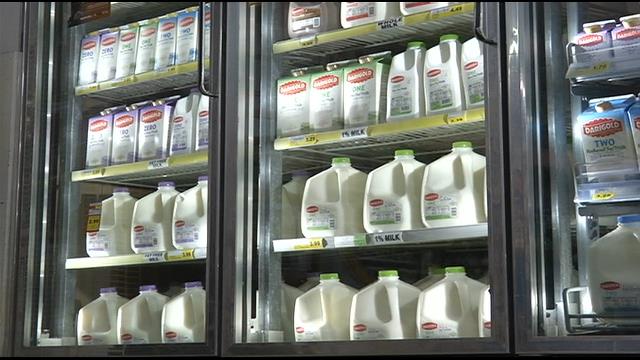By: Emily K. Deddens (JD ’15)
 Last weekend, I joined a group from the Food Law and Policy Clinic (FLPC) and travelled to Montana to track down some expired milk. The team, made up of Emily Broad Leib (FLPC director), Rebecca Richman Cohen (Emmy nominated film maker and HLS grad) and myself (a current FLPC student), are working on a short documentary on expiration dates and food waste. This documentary takes a new angle on the themes of the 2013 Dating Game Report; namely that the current system of food date labeling in the U.S. leads to the waste of safe, wholesome food.
Last weekend, I joined a group from the Food Law and Policy Clinic (FLPC) and travelled to Montana to track down some expired milk. The team, made up of Emily Broad Leib (FLPC director), Rebecca Richman Cohen (Emmy nominated film maker and HLS grad) and myself (a current FLPC student), are working on a short documentary on expiration dates and food waste. This documentary takes a new angle on the themes of the 2013 Dating Game Report; namely that the current system of food date labeling in the U.S. leads to the waste of safe, wholesome food.
While the overall message of the Dating Game Report and the documentary are that expiration date laws across the country need reform and that federal legislation is the best solution, the documentary focuses on one particular law in Montana. In Montana milk must be marked with a “sell-by” date of 12 days after pasteurization. After this date milk cannot be sold or donated, and stores with past-date milk on hand must throw it out (in fact, they cannot even dump it down the drain and recycle the cartons but are supposed to put the full cartons into dumpsters). However, this is not the only waste caused by this law. Many consumers mistakenly believe that date labels indicate the safety of a product for consumption and will therefore throw away past-date milk when it is still safe to drink. Contrary to that belief, milk remains fresh and safe to drink well past 12 days after pasteurization. In most states milk is dated up to 21 or even 28 days after pasteurization and even once pasteurized milk spoils it is unlikely to make people sick due to the fact that the pasteurization process kills any pathogens in the milk.
In Montana the FLPC team interviewed different stakeholders including grocery store owners and employees, milk distributors, and a Montana legislator who sponsored a bill earlier this year that would have eliminated the 12-day rule. The team also interviewed a number of people shopping in grocery stores regarding their interpretation of expiration dates and how they take those dates into consideration when deciding whether to purchase and consume food. They also spoke with the local media (KVTQ; NBCMontana; The Missoulian; Missoula Independent).
The film highlights this Montana law because it is an extreme example of a national problem. Across the country, confusing and arbitrary date labels on food lead to food waste. The film hopes to draw attention both to the problem of wasted food and to the fact that a solution—through uniform national legislation—is possible.
To stay up to date on our work with food expiration dates and FLPC’s other projects, follow us on Facebook and twitter.
————–
The views reflected in this blog are those of the individual authors and do not necessarily represent those of the Center for Health Law & Policy Innovation or Harvard Law School. This blog is solely informational in nature, and not intended as a substitute for competent legal advice from a licensed and retained attorney in your state or country.


Food Law & Policy, Commentary
Policy to Reduce Methane Emissions and Feed More People
April 3, 2025